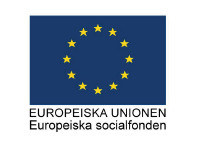projektinmating
Agriculture in Europe is facing different challenges; in log- term climate change (loss of biodiversity, soil- and water conservation...), energy, food-security, food production, new food, technological changes..., but particularly today they are facing price volatility, too low prices, financing, administrative issues, image of the profession, social acceptance,... Since the main farming model in Europe is family-farming these farms will have to struggle to stay viable in this challenging world. An increasing number of farmers do not think that further modernization and intensification of production is the long-term answer to the current difficulties in agriculture. They find it a risky and stressful option. Recent research carried out shows that more and more farmers are opting for “multi-functional farming”. In developing their farms they deepen, broaden and re-ground farm activities. Multi-functional farming has already established in many Western European countries. Current curricula in agricultural education, however, do not match the needs of this target group. The curricula do not convince young agronomic learners to follow this broadening trend as a possible alternative and they facilitate insufficiently possibilities to broaden of agricultural activities.
Therefore this partnership wants to develop a curriculum-unit (with ECVET) and a pedagogical guide for "multifunctional agricultural entrepreneurship education". The multi-functionality is situated in different categories
1) social functions,
2) economic functions ,
3) ecological functions and
4) mixed functions.
These project-results will be integrated into current agricultural education. The project will focus on the competences that are needed for managing multifunctional agriculture such as strategic insight, being creative, market insight, economic thought, financial literacy, social skills, commercial skills, knowledge of broadening opportunities (care services, ecology, energy ...).
The impact is that students in agriculture will have more opportunities, possibilities to start up or continue a viable family or small scale farm.
The project should be carried out transnational because of the opportunity that arises through the diversity of the different contexts. And mostly they are dealing with the same problems in other situational conditions. The overview of and insight in the resulting diversity of solutions can be inspiring or even be fully transferable. There is a high diversity of family farms in the EU, in terms of their size, activities they engage in, availability of resources, degree of market,
integration, competitiveness, etc. They operate in different economic, geographical, agro-ecological and historical and social contexts, ensuring food security while meeting rising societal expectations for food safety, quality, value, origin and diversity of food, and thus contribute to smart, sustainable and inclusive growth.
The contributing partners are, to a great extent, specialists in a variety of fields within broadening agriculture and are originating of different areas. This will allow for sharing of good practice as well as producing discussion and dissemination.
Outputs to be delivered:
- Introduction to sustainable diversification of family farming activities
- training in broadening agriculture competences
